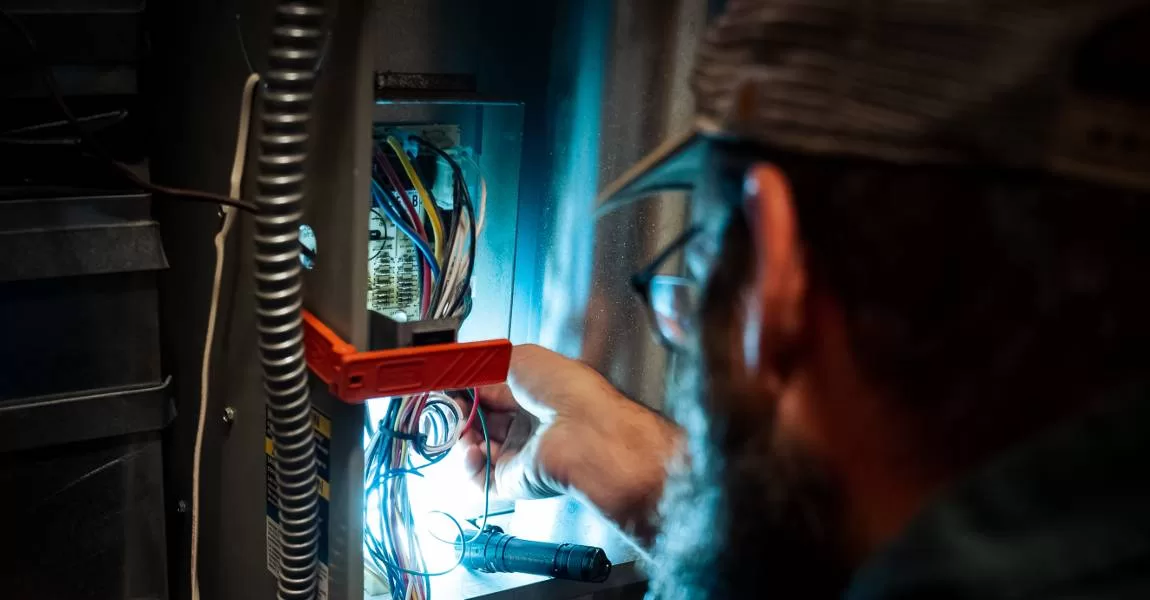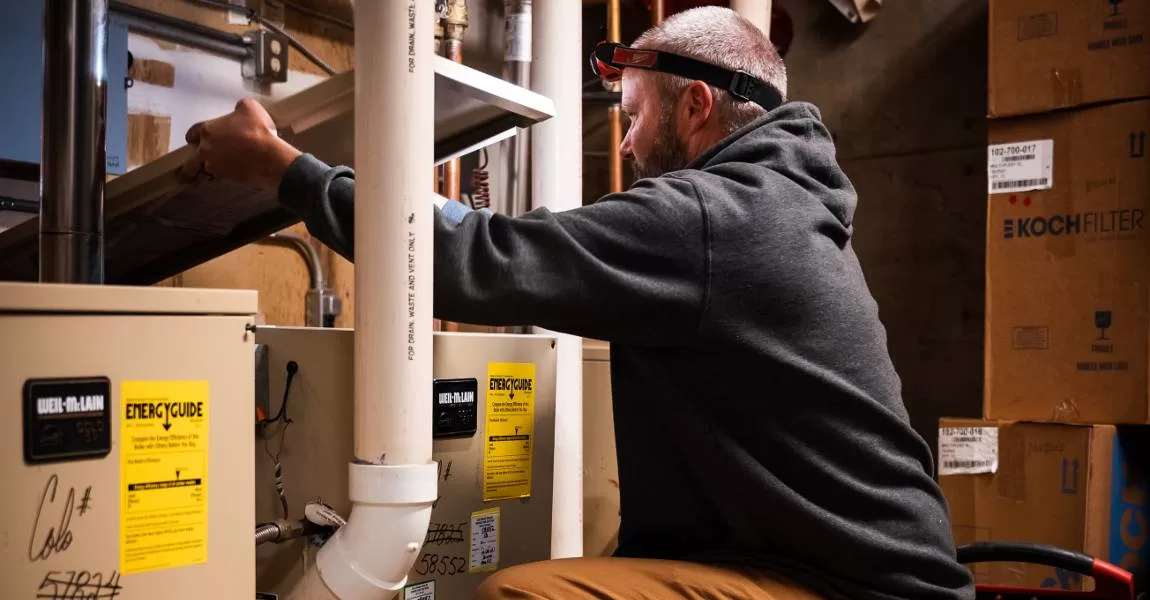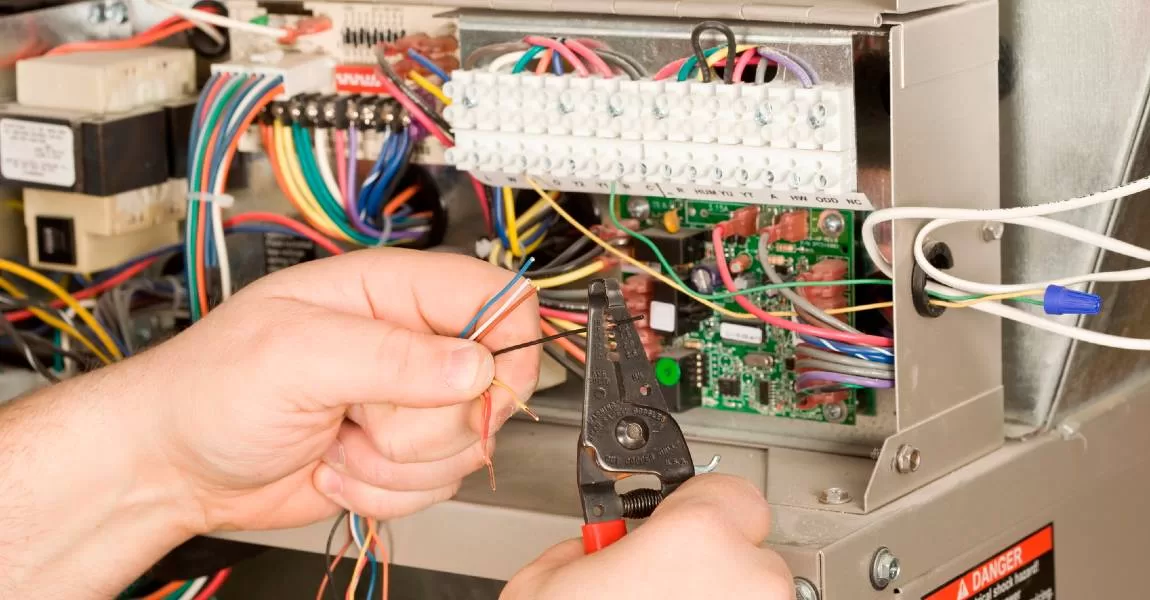Northern Colorado winters are no stranger to harsh conditions, with temperatures frequently plunging well below freezing. Choosing the Best Heating System is essential for comfort, energy efficiency, and long-term affordability. Here, we provide a thorough guide to understanding heating options and key considerations for Northern Colorado homeowners.

Table of Contents
Assessing Your Heating Needs
Climate Conditions in Northern Colorado
Northern Colorado experiences an extended winter season with temperatures ranging from mid-30s during the day to teens, and often below 0°F at night. A powerful heating system with reliable insulation is essential to maintain consistent indoor temperatures. Choosing the Best Heating System in Northern Colorado is essential.
Home Size and Layout
Homes with multiple levels or open floor plans typically require more complex heating solutions, such as zoned systems. For large or multi-story homes, higher capacity or ducted heating systems are more effective at evenly distributing warmth.
Insulation Quality
Effective insulation retains heat, reducing the system’s energy demand. For well-insulated homes, systems like boilers and radiant heating perform efficiently. However, poorly insulated homes may require more robust heating options or additional insulation investments.
What Size Furnace Do We Need For Our House?
Determining the appropriate furnace size for your home or business is essential for achieving optimal comfort, energy efficiency, and cost savings.
Furnace size is measured in British Thermal Units (BTUs), which reflect the amount of heat the unit can produce per hour. Key factors influencing the correct size include the square footage of the property, climate zone, insulation quality, ceiling height, and the number of occupants.
A furnace that is too small will struggle to maintain consistent temperatures, while an oversized unit can lead to energy waste and uneven heating.
Professional load calculations, such as a Manual J assessment, are highly recommended to ensure precise sizing based on the unique characteristics of your space.
Proper furnace sizing not only enhances heating performance but also extends the lifespan of the unit and reduces utility costs.
Exploring Types of Heating Systems
Different heating systems each offer unique benefits and limitations. Here, we outline the most common options: Choosing the Best Heating System.

Furnaces
Furnaces work by heating air in a metal exchanger, using fuels such as natural gas, propane, or oil. This warm air is then distributed via ductwork. Furnaces are popular due to:
- Quick Heating: Rapidly warms the home.
- Energy Efficiency: Newer models achieve high energy efficiency with lower emissions.
- Central Air Compatibility: Can be paired with central cooling systems.
Limitations: Noise and the need for extensive ductwork can be drawbacks for some homeowners.
Boilers
Boilers generate heat by warming water, which circulates through radiators or radiant floor systems. Their advantages include:
- Quiet Operation: Boilers operate with minimal noise.
- Consistent Heat Distribution: Provides even warmth without temperature fluctuations.
Drawbacks: Installation costs are typically higher, and they may heat up more slowly than furnaces.
Heat Pumps
Heat pumps transfer heat instead of generating it. This dual-function system provides both heating in winter and cooling in summer.
- Energy Efficiency: Heat pumps can offer up to four times the efficiency of other systems.
- Dual Purpose: Serves as both heating and cooling solution.
Considerations: For extreme cold, heat pumps may need supplementary heating sources for adequate performance.
Radiant Heating
Radiant heating uses either electric coils or water-heated tubing installed under flooring.
- Uniform Heat: Radiates consistent warmth from the floor up.
- Energy Efficiency: Uses less energy over time due to direct heat transfer.
Challenges: High installation costs and difficulty retrofitting existing floors.

Electric Heaters
Common in baseboards, wall units, and space heaters, electric heaters are typically used for targeted, supplementary heat rather than whole-home solutions.
- Easy Installation: Simple to install, especially for small spaces.
- Spot Heating: Ideal for small rooms or areas needing temporary heat.
Learn more about Electric Furnace vs. Gas Furnace in our Ultimate Guide.
Drawbacks: High operating costs make them less suitable for whole-home heating.
Choosing the Right Fuel Source
The right fuel type can significantly affect both the efficiency and cost of a heating system. Here’s a breakdown of the main fuel sources:
- Natural Gas: Highly efficient and widely available, natural gas is cost-effective for most homes.
- Oil: Suitable for locations without natural gas access but requires storage and regular delivery.
- Electricity: Versatile but generally more expensive than natural gas; compatible with renewable energy sources.
- Propane: Portable and usable in remote areas; often more costly than natural gas.
- Wood or Pellets: Cost-effective in areas with a reliable wood supply, though maintenance and emissions are considerations.
Evaluating Energy Efficiency
Efficient systems reduce energy consumption, lowering utility bills and environmental impact.
Efficiency Ratings
- AFUE (Annual Fuel Utilization Efficiency): Indicates furnace and boiler efficiency. Higher ratings mean greater efficiency.
- HSPF (Heating Seasonal Performance Factor): Used for heat pumps, indicating seasonal energy efficiency.
Energy Star Certification
Heating systems certified by Energy Star meet stringent efficiency criteria, promising savings on energy bills.
Installation and Maintenance
Professional Installation
Correct installation ensures optimal performance, safety, and efficiency. We highly recommend hiring a certified professional for installation to maximize the system’s lifespan and efficiency.
Routine Maintenance
Different systems require varying levels of maintenance. Some, like boilers, need regular inspections, while heat pumps may require seasonal servicing to maintain efficiency.
Clean Your Modern Home Furnace
Regularly cleaning your furnace improves its efficiency, extends its lifespan, and ensures clean indoor air.
Pro Tip: Schedule Annual Professional Maintenance
While basic cleaning helps, modern furnaces contain sensitive components. A professional HVAC technician can handle deeper maintenance, inspect for damage, and ensure safety.
By following these steps, you’ll keep your modern furnace clean, efficient, and ready for peak performance all year round.
Why an Annual Furnace Tune-Up Is Important
An annual furnace tune-ups are essential to ensure your system operates efficiently, reducing energy costs and preventing unexpected breakdowns. Regular maintenance also extends the lifespan of your furnace and keeps your home safe by identifying potential hazards early.
Understanding Cost Considerations
Initial Investment
Installation costs differ by system type, with options like radiant heating and boilers often requiring higher upfront investments.
Operating Costs
Consider energy and maintenance expenses over time. Systems with higher efficiency ratings and lower maintenance needs will reduce costs in the long term.
Environmental Impact
Reducing a system’s carbon footprint is becoming increasingly relevant. Here’s a look at how different systems affect the environment:
- Emissions: Natural gas furnaces have lower emissions, while oil and wood stoves can produce higher emissions.
- Renewable Compatibility: Electric systems, especially those powered by renewable energy, have the lowest environmental impact.
Additional Features for Modern Heating Systems
Smart Thermostats
Wi-Fi-enabled thermostats offer remote control, energy monitoring, and programmable settings, allowing for enhanced efficiency and convenience.
Zoning Systems
For larger homes, zoning allows for room-by-room temperature control, increasing comfort and minimizing energy use.
Working with a Professional Contractor
A qualified heating contractor provides essential services for effective system installation and maintenance.
- Needs Assessment: Evaluates heating needs based on home size, layout, and insulation.
- System Recommendations: Offers expert advice on system types and fuel sources suited to your home.
- Installation and Testing: Ensures systems are correctly installed, tested, and explained to homeowners for easy operation.
- Warranty Support and Maintenance: Manages scheduled maintenance and assists with any warranty needs.
Choosing the Best Heating System for your Northern Colorado home involves careful consideration of climate, insulation, system type, and energy efficiency. Professional guidance will ensure a long-lasting, efficient, and comfortable heating solution.
Have questions about selecting the right heating system for your Northern Colorado home? JD’s Plumbing, Heating and Air Conditioning is here to help! Our experts can guide you in choosing the most efficient and reliable heating solution for your comfort and budget.
Contact us today at 720-735-9170 and let us help you find the perfect heating system tailored to your home’s unique needs. Your comfort is our priority! We provide furnace repairs, furnace installation, furnace cleaning, boiler repairs and installation. Call Today.
FAQ – Choosing the Right Heating System for Your Northern Colorado Home
What is the best heating system for Northern Colorado’s cold climate?
The best system depends on your home’s size, insulation, and fuel availability. Natural gas furnaces and heat pumps with supplementary heating are popular choices for consistent warmth and energy efficiency in cold climates.
How does home insulation impact heating needs?
Proper insulation retains heat, which reduces the energy demand on your system. Homes with better insulation may perform well with smaller systems, saving on both energy costs and wear on the equipment.
Which fuel source is most efficient for Northern Colorado homes?
Natural gas is typically the most efficient and cost-effective fuel source. Electricity and propane are alternatives in areas without gas access, though they may have higher operating costs.
How do I determine the right heating system size for my home?
Consult a professional contractor for a load calculation. This considers factors like home size, insulation, and layout to recommend a system that efficiently meets your heating needs.
Are heat pumps effective in cold weather?
Heat pumps can be effective but may need a supplementary heat source in freezing temperatures. They are energy-efficient and provide both heating and cooling.
What maintenance is required for a heating system?
Regular maintenance, such as filter changes, duct cleaning, and annual inspections, ensures efficient operation and prolongs system life. Furnaces, heat pumps, and boilers all benefit from scheduled servicing.
How can a smart thermostat improve my heating system’s efficiency?
Smart thermostats allow for remote control and scheduling, reducing energy waste by adjusting heating based on occupancy and peak usage times, which can help lower energy bills.
How do I check smart thermostats furnace compatibility?
To check a smart thermostat’s compatibility with your furnace, review the thermostat’s compatibility guide for system types (e.g., gas, oil, electric) and wiring requirements, or use the manufacturer’s online compatibility checker tool.
Is radiant floor heating a good option for Northern Colorado homes?
Radiant heating provides even warmth and can be highly efficient, but it involves higher installation costs. It’s a good option for homes with robust insulation and a preference for quiet, unobtrusive heating.
How does AFUE or HSPF rating affect heating system choice?
AFUE (for furnaces/boilers) and HSPF (for heat pumps) indicate a system’s efficiency. Higher ratings mean greater efficiency, which reduces long-term energy costs. Look for systems with high AFUE or HSPF ratings for better performance.
Why should I work with a professional contractor for heating system installation?
Professional contractors ensure proper installation, which impacts system efficiency, safety, and longevity. They can also help choose the right system and manage maintenance, ensuring optimal performance for years to come.


